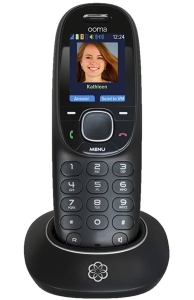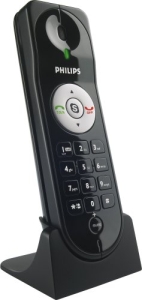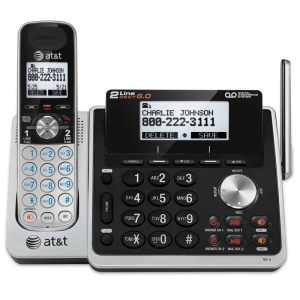Even though modern desk phones, especially those that are VoIP compatible by default, have many advanced features, there is one major disadvantage you cannot avoid: they are not portable unless you detach them from the cloud phone system. If you’re continuously on the move within your company’s facilities, you need something with more or less the same features of a desk phones, but with the convenience of portability. This is where cordless phones, also known as handsets, come into the picture. Despite still not being as widespread as VoIP desk phones, cordless phones have many pros with which they easily beat their fixed counterparts. But in which cases should you opt for a desk phone unit or a cordless handset? And which are the best VoIP handsets available on the market?
Pros & Cons of Handsets
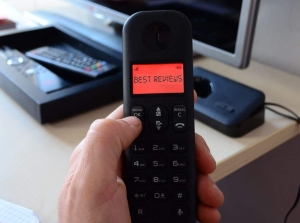 There are some very good reasons why more and more people are buying handsets instead of desk phones. The biggest, and probably the most obvious advantage is that you can move quite far away from the receiver without being bothered by phone cords. Furthermore, thanks to dual handsets, you can have two or more cordless phones linked to the same docking station, meaning you can place handsets anywhere to easily pick up calls when needed. You can also have it double as a neat little intercom system (which can even serve as baby monitors). Last but not least, the most up-to-date handsets come with advanced features like picture caller-IDs, contacts syncing, a headset jack and HD voice.
There are some very good reasons why more and more people are buying handsets instead of desk phones. The biggest, and probably the most obvious advantage is that you can move quite far away from the receiver without being bothered by phone cords. Furthermore, thanks to dual handsets, you can have two or more cordless phones linked to the same docking station, meaning you can place handsets anywhere to easily pick up calls when needed. You can also have it double as a neat little intercom system (which can even serve as baby monitors). Last but not least, the most up-to-date handsets come with advanced features like picture caller-IDs, contacts syncing, a headset jack and HD voice.
However, since handsets communicate via radio waves, there is a huge chance of interference caused by other cordless devices. Unlike smartphones, you have to stay within a certain range from the docking station. And most importantly, there is the power issue: not only do handsets require batteries to operate, but if there is a power outage, their docking stations are out of the game.
Handset vs Desk Phone
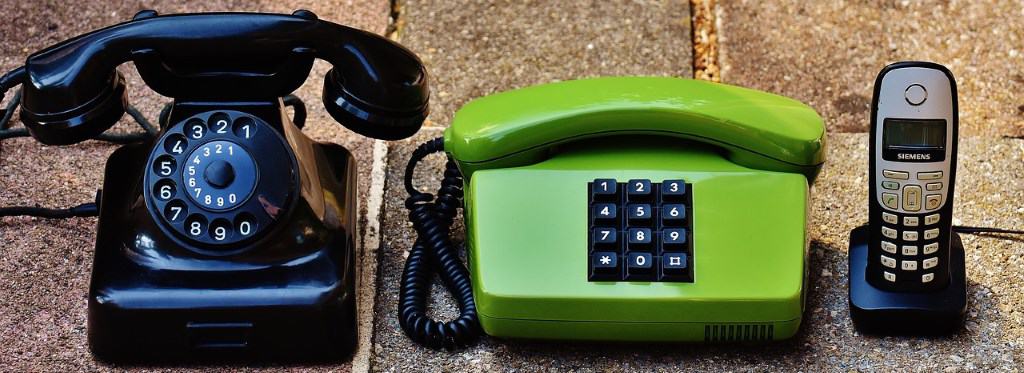
Before you decide whether you want a handset or a desk phone, take into consideration your preferences and the intended use of your VoIP system. If you are stationed at the same space for longer periods of time, or you are an attendant/system operator, you need a desk phone. Desk phones can handle multiple lines and extensions at the same time (even via expansion modules) and they have hard keys with which you can give commands related to calls and voicemails. Furthermore, they possess larger screens and they cost less than their cordless counterparts.
However, if you often move around within your place of work, you should get a handset. Cordless devices might cost more and have smaller screens, but both the handset and their docking station are more portable. They also have more convenient, mobile-like menus for further call handling and system management purposes so the devices can be lighter (since they only have the most necessary hard keys). And like we said before, there are cordless sets with which you can use multiple handsets with the same docking station, meaning better mobility.
Getting VoIP Handsets
Like in the case of desk phones and ATAs you can buy pre-configured cordless VoIP phones (or to be more precise, mobile sets) from many cloud phone system providers. Furthermore, many companies even provide you the option to not buy, but rent the phones for a monthly rental fee.
When you browse the cordless phone supply with your VoIP provider itself, you will notice something: not only you can choose from a smaller amount of phones (mostly those of Yealink, Panasonic and VTech), but they can be insanely expensive compared to more advanced desk phones. Therefore, the best option to score a better deal is to purchase your handsets somewhere else, like in consumer electronics stores or in online shops like Amazon – even though it means you need to configure your phones with your VoIP system yourself.
Recommended VoIP Handsets
Even though you have the option to use analog phones with adapters, it is best to purchase a VoIP-ready device, because they are more advanced and can be perfect substitutes for desk phones. Here are a few of the best VoIP cordless phones:
Ooma HD2
Even though Ooma HD2 can be purchased separately or with Ooma Telo from the manufacturer, Amazon offers it for way better prices: the handset is $45.95, while a complete Ooma set is $99.99.
Philips VoIP 080 Skype Travel Phone
However, as a physical extension it is a pretty clever solution: you can place and receive calls via your computer while having the convenience of doing so via a device that resembles an actual cordless desk phone.
Furthermore, the Philips 080 perfectly integrates with Skype, which you can access with a touch of the designated Skype hard key. Attention: the phone is intended to be used with Windows XP only, using it with other operating systems might result in compatibility issues.
AT&T TL88102 2-Line Handset and TL88002 Accessory
However, the biggest difference is that TL88002 is only a complementary of the TL88102, the base unit. In fact, the base unit is a clever mix between a cordless phone and a desk phone, since it has a built-in answering machine and a 2.5mm headset jack. Furthermore, the TL88102 is capable of housing two lines and up to 12 TL88002 complementary handsets at the same time.
With Amazon the TL88102 is $102.60, a complementary TL88002 is $29.93, while a bundle with 3 additional handsets is $179.98.
Best VoIP Systems of 2024
| Rank | Provider | Info | Visit |
|
1
|
Editor's Choice 2024
|
|
|
|
2
|
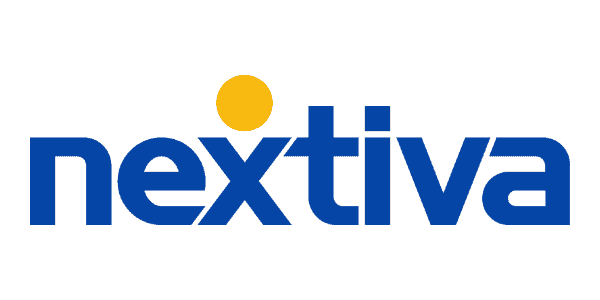
|
|
|
|
3
|
|
|
Best VoIP Systems of 2024
| Rank | Provider | Info | Visit |
|
1
|
Editor's Choice 2024
|
|
|
|
2
|

|
|
|
|
3
|
|
|
Get the Best Deals on Virtual Phone Systems
Our monthly newsletter delivers the latest virtual phone systems deals, trends and reviews directly into your inbox.

